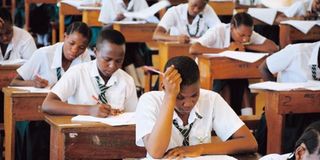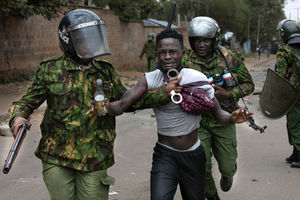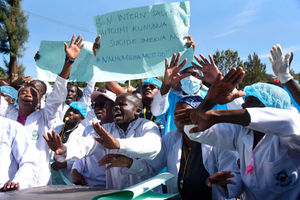TZ is working on basic education for all youth

What you need to know:
The permanent secretary (Perm-Sec) in the ministry of Education, Science, Technology and Vocational Training, Dr Leonard Akwilapo, revealed this in Dar es Salaam on Monday, March 19, during a meeting of the National Steering Committee of the UN Joint Project on ‘Empowering Adolescent Girls and Young Women through Education.’
Dar es Salaam. The government has revealed its plan to establish Qualifying Test (QT) centers in every district across the country targeting to accommodate adolescent school dropouts, especially girls.
The permanent secretary (Perm-Sec) in the ministry of Education, Science, Technology and Vocational Training, Dr Leonard Akwilapo, revealed this in Dar es Salaam on Monday, March 19, during a meeting of the National Steering Committee of the UN Joint Project on ‘Empowering Adolescent Girls and Young Women through Education.’
The Perm-Sec said that the plan – which is funded by the government of South Korea – is among the government’s efforts to reduce the rate of school girls’ dropout, and support them through alternative learning opportunities.
“Young girls who couldn’t complete their basic education because of various reasons – including early pregnancy – will use this opportunity to complete their education cycle,” Dr Akwilapo explained.
Noting that, under this program, young girls will also receive training in entrepreneurship and pre-vocational training, the Perm-Sec said “this will make it easy for them to join the world of employment, and make use of income-generating opportunities and empowerment to support their livelihood.”
The five-year project (2016-2021) is being managed by the United Nations Educational, Scientific and Cultural Organization (Unesco) – and is being implemented in the four districts of Ngorongoro, Sengerema, Micheweni and Kasulu.
According to Unesco, the districts have been selected on the basis of low performance of schoolgirls, high dropout rates, high fertility rates and other sexual and reproductive health challenges.
The Unesco head of education sector, Ms Faith Shayo, said education is one of the organization’s priority sectors, noting that it is well aligned in the fourth goal of the UN-backed Sustainable Development Goals (SDGs 4).
According to him, girls have been the most disadvantaged segment of the Tanzanian population, largely because of bad cultural practices that include early marriage and female genital mutilation (FGM).
“The project will increase efforts to empower girls through education – and, that, school girls will be provided with knowledge on the importance of education,” Ms Shayo said.
The Unesco progress report (July 2017 to October 2017) shows that 136 people have been reached so far by the program. These include district education officers, school heads, ward/village officials, members of school committees and community leaders.
The project brings together key line ministries and stakeholders such as the partners, UNFPA and UN-WOMEN.




